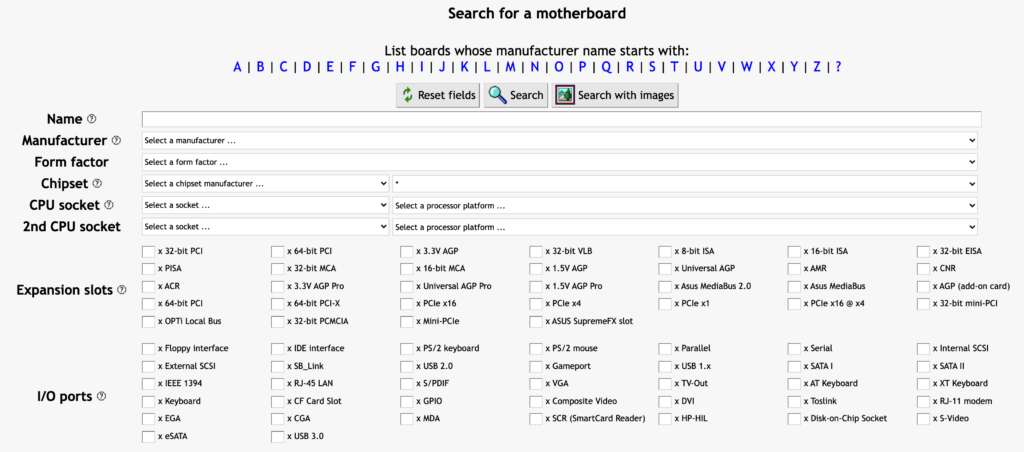Long ago… when you bought a motherboard or an entire computer, you’d get a set of books, installation and driver disks. If you needed help, you could telephone the manufacturer or write a letter. Some had dial-in bulletin board systems (BBS) for support, that’s if your PC was operational or you happened to have a second computer to use while trying to fix the first one.
These days, we don’t know the pains of unreadable backup floppies that saw a bit too much heat, sunlight or a stray magnet. We no longer need the stacks of books as most everything can be found online… Just about every company can be emailed with a 1-2 day response expected… for zero cost!
Troubleshooting Vintage Hardware is Harder Today Than It Was Then
That is… if you don’t know where to look. For the average person with limited ‘google-foo’ you might struggle to find what your looking for.
If your looking for a specific jumper setting for a 286 or 386 motherboard…
- Good luck calling the manufacturer (if they still exist!)
- If someone didn’t scan the manual (page-by-page) Google won’t help you either
- Local libraries have long-since thrown out the dated “Upgrading and Troubleshooting Your PC” and almost anything written by the famed Peter Norton
- Manufacturers that DO exist (like HP, Dell, IBM and others) have started DELETING all their precious content on the older equipment they once sold
The Rebirth of Vintage PC Usage
For the last 10+ years the group of people who actually continued to use vintage computer equipment was quite small. Most of them farmers who couldn’t afford to replace an aging greenhouse or cow milking management system…. or CNC routers and machine shops and industrial applications.
The 2019-2021 pandemic left the masses with a lot of spare time and a massive resurgence in all things vintage. Everything from toys to boardgames regained popularity… as did the use of DOS, Windows 3.11 and Vintage Macs.
Enthusiasts started re-discovering the PCs of their youth and some started rescuing them from recyclers, garage sales and trash bins.
The problem is… many of these once common machines lack their documentation, drivers and software. Some even lack the information.
The Race to Preserve Old PC Documentation
We live in a throw-away society.
PCs are being recycled at an alarming rate – even when they’re often still completely usable. Even in the 1980’s thru the 90’s it wasn’t uncommon for someone to throw out the countless booklets and documents that came with their PC. Especially if they never planned on using the features documented within.
There’s hope, though!
Over the years, a number of websites (like ELHVB.com) and forums (like Vogons) and other sites like them have been like a breath of fresh air to those looking to restore an old machine. They’re not always easy to search though, and they were built up over time.
Introducing the Incredible Folks at UR
What you might not know… is that a group of people from a number of countries are working tirelessly 24/7 on a private discord.
They scour the net, hunt through old archives… dump old BIOS chips and datasheets from old chipsets and manufactures to catalog the disappearing PC knowledge.
These aren’t your average folks, either. Some are coders and hardware technicians… others are CPU collectors and PC restoration experts. Others are just data junkies and archivists who’ve kept what most people threw away.
Together, they’re making the once-impossible a reality.
At one time, finding a BIOS dump for a specific old machine would be impossible. Sure, you can find websites filled with ads that are basically a regurgitated dump of old books from now-extinct companies that are just using the info to sell ads. Others lock the precious data down requiring you to buy their driver software or spyware-loaded PC tools…
That’s what’s exciting about the project at UltimateRetro.net – It’s everything you’d really want in a site cataloging motherboards from early XT platform right up to Core2Duo/Socket 775. It’s easy to search, contains jumper data, BIOS updates and so much more in an easy to search platform.
Want to identify your motherboard?
- Search by manufacturer
- Search by chipset or number of ports
- Search by socket type or unique ports/expansion slots

UltimateRetro makes all this easier with over 9500 boards in the database and counting.
You might think… well, another site loaded with info you can find with enough searching online, but that’s not actually the case. See, I joined the private chat to upload stuff that can’t be found anywhere.
I wanted to contribute to something that makes the info available free without ads or spyware.
It’s NOT stuff you’re going to find easily on Google or Archive.org. I’ve got boards, manuals and components there’s no mention of online – anywhere.
This database has already had a huge impact
This database has already helped restore vintage PC’s in museums, motherboard rescues that lacked a BIOS chip, vintage arcade machines and machines being used in seniors homes.
It’s been used to help repair machines that keep farm greenhouses and CNC routers that still run on Windows 95 alive.
In the next several years, it may even have a bigger impact as they work to catalog other PC parts beyond motherboards… and as the demand for the ORIGINAL hardware… or the emulation of vintage boards becomes more popular in the coming years.
So the next time you’ve got an unidentifiable motherboard or something needing repair, see what you might discover when you look up your board (or contribute a picture or BIOS dump of your board) to UltimateRetro.net.
You’ll be leaving something for the next generation to discover.